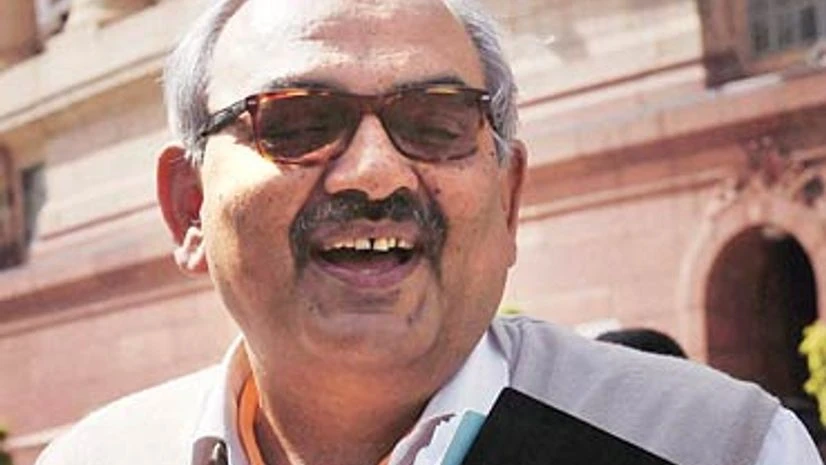Those who follow European club football must know a thing or two about shock transfers. For any transfer of a player from one club to another to be called a 'shock', it has to contain a huge element of surprise, either in terms of who the player is, where he is, where he is going, at what stage in his career is the move being made or the amount of money involved.
A recent example is Manchester United signing unheralded French teenager Anthony Martial for a staggering euro 36 million, so much so that club captain Wayne Rooney reportedly asked, "Martial who?"
Closer home, another high-profile example of a 'shock transfer' played out earlier this week, though it wasn't in the mega-rich environs of elite football, but in the corridors of power in Delhi, when outgoing Finance Secretary Rajiv Mehrishi was made the home secretary for a tenure of two years.
While certainly no one will ask, "Rajiv who?" this time around, it is an equally big surprise in terms of who Mehrishi is, where he was and where he was actually supposed to be going.
The announcement of his appointment came on the day of his retirement, his last day in North Block (where finance and home ministries are based), and he was supposed to be headed to his hometown of Jaipur, where, as he had told Business Standard last week, he wanted to spend time with his parents and catch up with things he always wanted to do, like writing and reading.
The buzz in the bureaucratic circles is that Mehrishi himself came to know about his appointment very late in the day. People close to him say he had already commissioned renovations to his home in Jaipur. His elevation to one of the country's three most powerful bureaucratic posts (the other two being the cabinet secretary and the principal secretary to the prime minister) speaks volumes about the influence that Prime Minister Narendra Modi and Finance Minister Arun Jaitley hold over transfers within the government. Mehrishi is said to be favoured by both men.
Mehrishi's predecessor in home ministry, LC Goyal, took voluntary retirement on Monday, seven months into his two-year tenure, as abruptly as he was made home secretary in February when he replaced Anil Goswami, who was the previous UPA government's choice.
Goyal is said to have had differences with Home Minister Rajnath Singh on a number of issues, and his criticism of the home ministry being kept out of the loop on the Naga Peace Accord did not go down well with the Prime Minister's office.
A 1978 batch officer from the Rajasthan cadre, Mehrishi's appointment as secretary of finance and economic affairs was equally sudden, when he replaced his senior from Rajasthan, Arvind Mayaram. Mayaram, who was appointed under former Finance Minister P Chidambaram, was packed off to the tourism ministry, but before he could take charge, was re-assigned to the minority affairs ministry.
Mehrishi rose to national prominence as the chief secretary to the Vasundhara Raje government in Rajasthan, where he is credited with ushering in path-breaking labour reforms that has now become a template for other states to implement. The reforms were related to easing retrenchment norms, hiring more contract workers, toughening trade union formation, among others.
In the finance ministry and as the head of the economic affairs department, Mehrishi, along with Chief Economic Advisor Arvind Subramanian, oversaw the making of one of the most fiscally prudent budgets in recent years, in which Finance Minister Jaitley delayed the fiscal consolidation road map by a year, thus freeing up Rs 70,000 crore additional amount for public spending in infrastructure.
It was also during his tenure as finance secretary that the government set out on a major re-setting of relations with the Reserve Bank of India and the latter's responsibilities. Over the coming years, the power to issue government securities will be taken away from RBI and be given to the proposed Public Debt Management Agency, while money market regulations will go to the Securities and Exchange Board of India.
Also, a seven-member Monetary Policy Panel may be set up to decide interest rates, which will have four government appointees, and will give the RBI governor a tie-breaker vote as opposed to the complete power to decide the rates which he has now.
Mehrishi, a post-graduate in history with a degree in management from the UK, now takes charge of a ministry which deals with everything from insurgencies to national administration, and from paramilitary forces to natural disasters.

)
